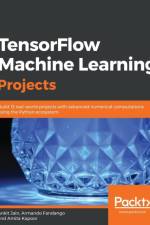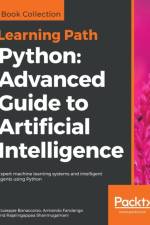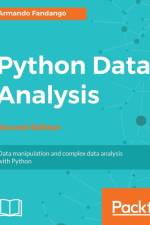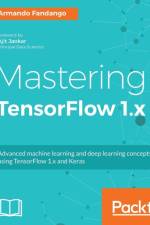von Armando Fandango
70,00 €
Learn how to apply powerful data analysis techniques with popular open source Python modulesAbout This Book* Find, manipulate, and analyze your data using the Python 3.5 libraries* Perform advanced, high-performance linear algebra and mathematical calculations with clean and efficient Python code* An easy-to-follow guide with realistic examples that are frequently used in real-world data analysis projects. Who This Book Is ForThis book is for programmers, scientists, and engineers who have the knowledge of Python and know the basics of data science. It is for those who wish to learn different data analysis methods using Python 3.5 and its libraries. This book contains all the basic ingredients you need to become an expert data analyst. What You Will Learn* Install open source Python modules such NumPy, SciPy, Pandas, stasmodels, scikit-learn,theano, keras, and tensorflow on various platforms* Prepare and clean your data, and use it for exploratory analysis* Manipulate your data with Pandas* Retrieve and store your data from RDBMS, NoSQL, and distributed filesystems such as HDFS and HDF5* Visualize your data with open source libraries such as matplotlib, bokeh, and plotly* Learn about various machine learning methods such as supervised, unsupervised, probabilistic, and Bayesian* Understand signal processing and time series data analysis* Get to grips with graph processing and social network analysisIn DetailData analysis techniques generate useful insights from small and large volumes of data. Python, with its strong set of libraries, has become a popular platform to conduct various data analysis and predictive modeling tasks. With this book, you will learn how to process and manipulate data with Python for complex analysis and modeling. We learn data manipulations such as aggregating, concatenating, appending, cleaning, and handling missing values, with NumPy and Pandas. The book covers how to store and retrieve data from various data sources such as SQL and NoSQL, CSV fies, and HDF5. We learn how to visualize data using visualization libraries, along with advanced topics such as signal processing, time series, textual data analysis, machine learning, and social media analysis. The book covers a plethora of Python modules, such as matplotlib, statsmodels, scikit-learn, and NLTK. It also covers using Python with external environments such as R, Fortran, C/C++, and Boost libraries. Style and approachThe book takes a very comprehensive approach to enhance your understanding of data analysis. Sufficient real-world examples and use cases are included in the book to help you grasp the concepts quickly and apply them easily in your day-to-day work. Packed with clear, easy to follow examples, this book will turn you into an ace data analyst in no time.




